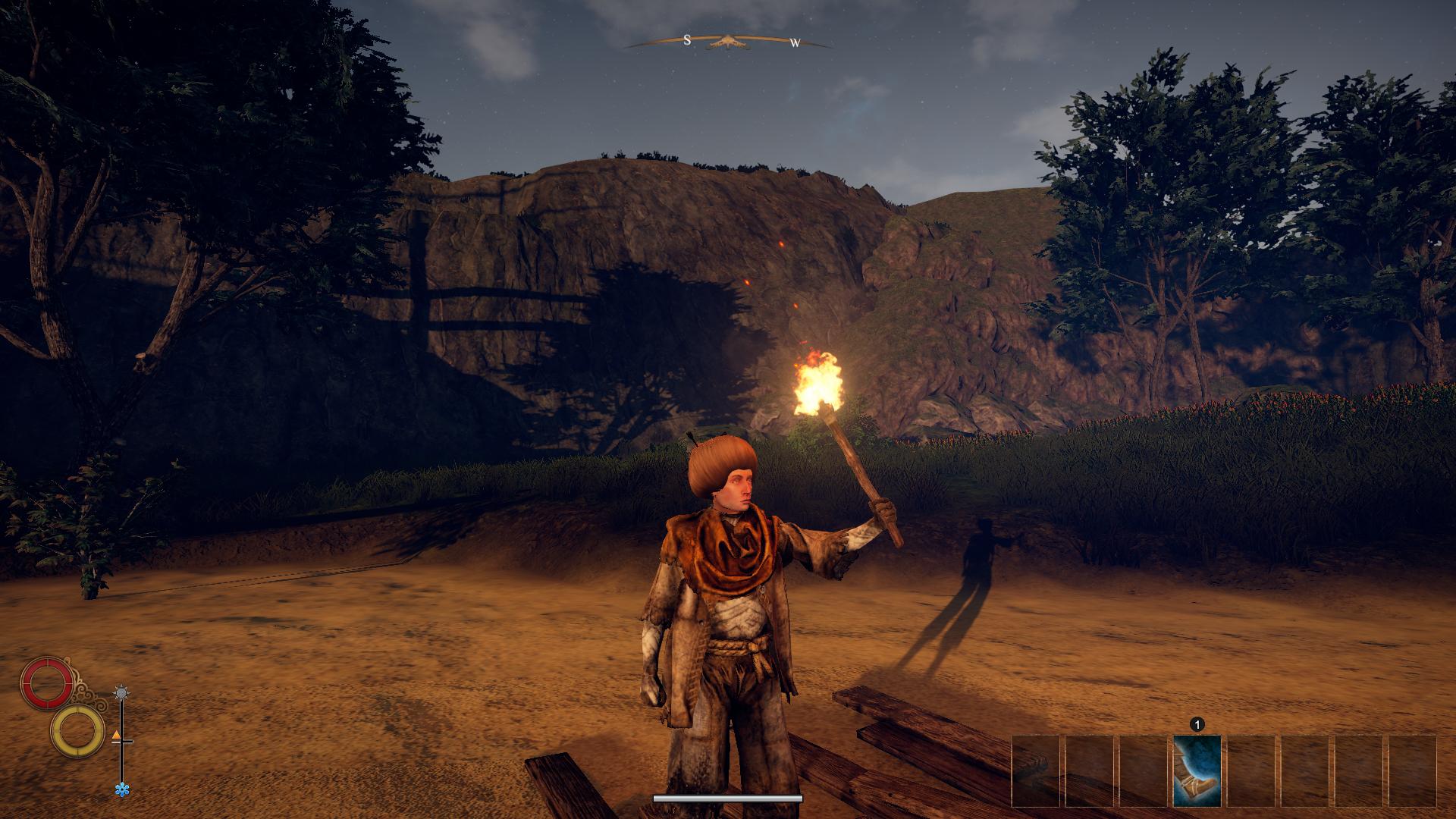CEO of studio behind indie RPG hit Outward explains how they made it without crunch
How Quebec-based studio Nine Dots made their game without working 100-hour weeks.

Outward is both a hardcore fantasy RPG and a game where you can never die. When you fall, the story carries on. Maybe the outlaw who knocked you down captures you and you have to escape from a bandit camp, maybe a hunter finds you bleeding on the ground and drags you back to town. It's an unusual combination of fiddly and forgiving, and it's proven a hit with players.
Guillaume Boucher-Vidal, CEO of the indie studio responsible for it, Nine Dots, recently gave an interview to Gamasutra about how Outward was made, explaining how a small team was able to create an open-world RPG without needing to crunch.
For starters, they reigned in the scope. Early in development they discovered environments were taking longer to craft than expected, but monsters were coming much faster. He explained that, "as we advanced in development we realized that we were able to make a much higher number of enemies, but we had to slim down the number of environments. We could sort of shape the game according to our own abilities while we were developing. It was more effective, and it was also a matter of maintaining the velocity."
Boucher-Vidal also suggested that a reliance on iteration and prototyping to "find the fun" were wasteful, and that sticking to a pre-production design document rather than experimenting during production helped them stick to a schedule. "I see the game design job as being closer to an architect or director," he said, "like you would see on movies where you actually have a plan laid out and try to execute it."
You can read the full interview here.
Keep up to date with the most important stories and the best deals, as picked by the PC Gamer team.

Jody's first computer was a Commodore 64, so he remembers having to use a code wheel to play Pool of Radiance. A former music journalist who interviewed everyone from Giorgio Moroder to Trent Reznor, Jody also co-hosted Australia's first radio show about videogames, Zed Games. He's written for Rock Paper Shotgun, The Big Issue, GamesRadar, Zam, Glixel, Five Out of Ten Magazine, and Playboy.com, whose cheques with the bunny logo made for fun conversations at the bank. Jody's first article for PC Gamer was about the audio of Alien Isolation, published in 2015, and since then he's written about why Silent Hill belongs on PC, why Recettear: An Item Shop's Tale is the best fantasy shopkeeper tycoon game, and how weird Lost Ark can get. Jody edited PC Gamer Indie from 2017 to 2018, and he eventually lived up to his promise to play every Warhammer videogame.

